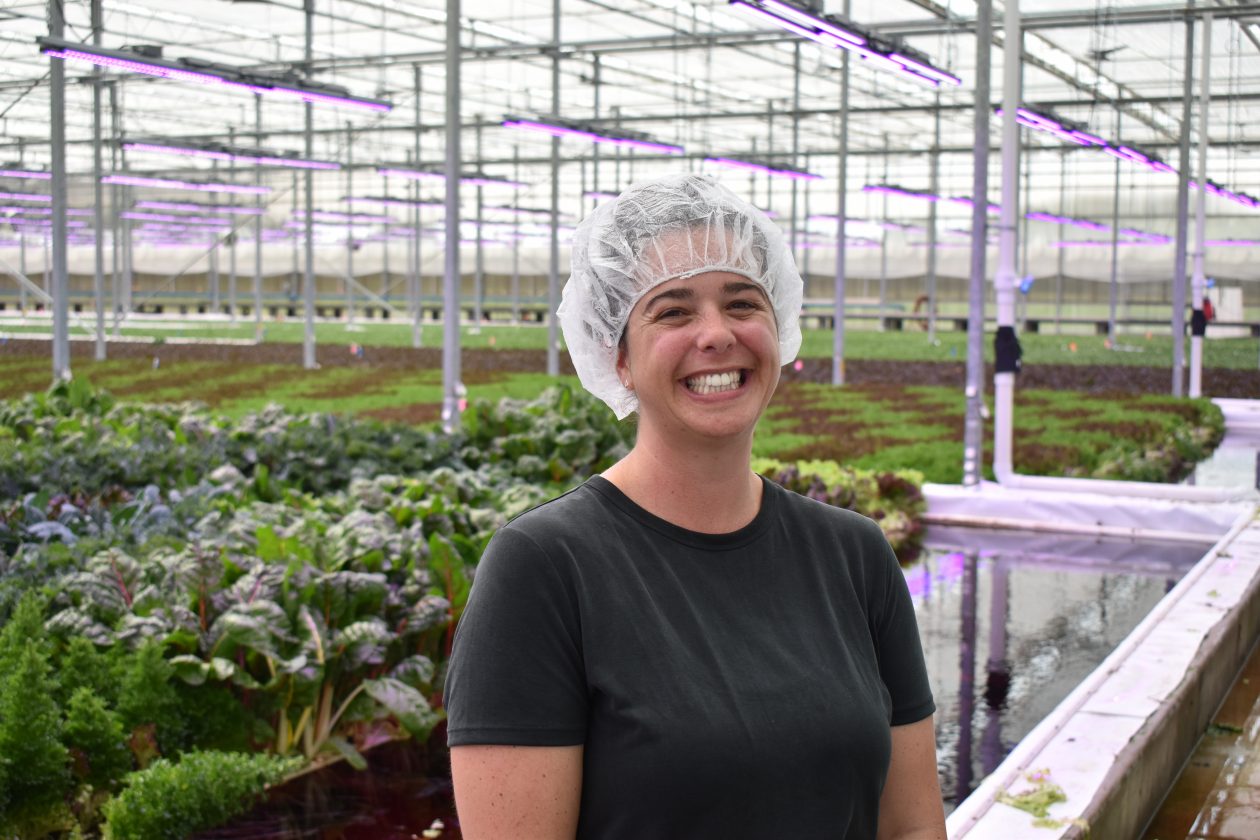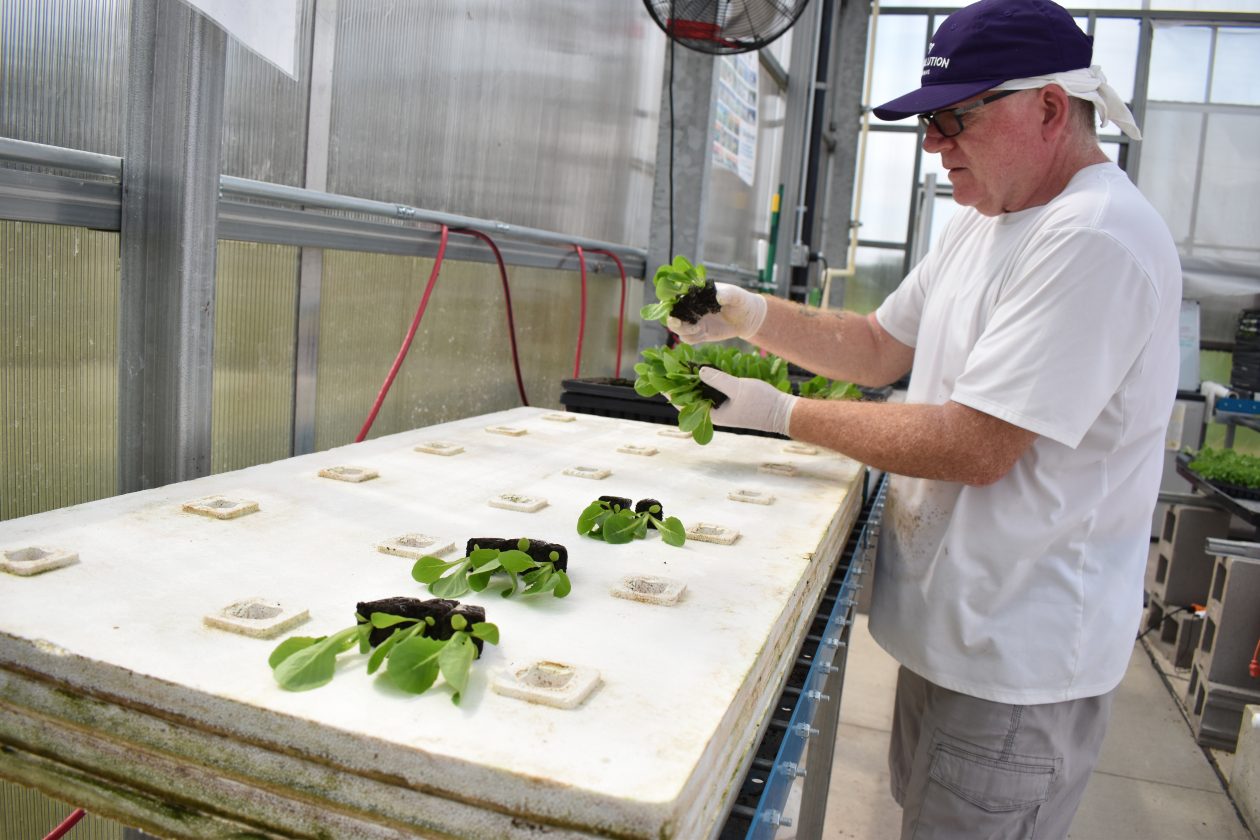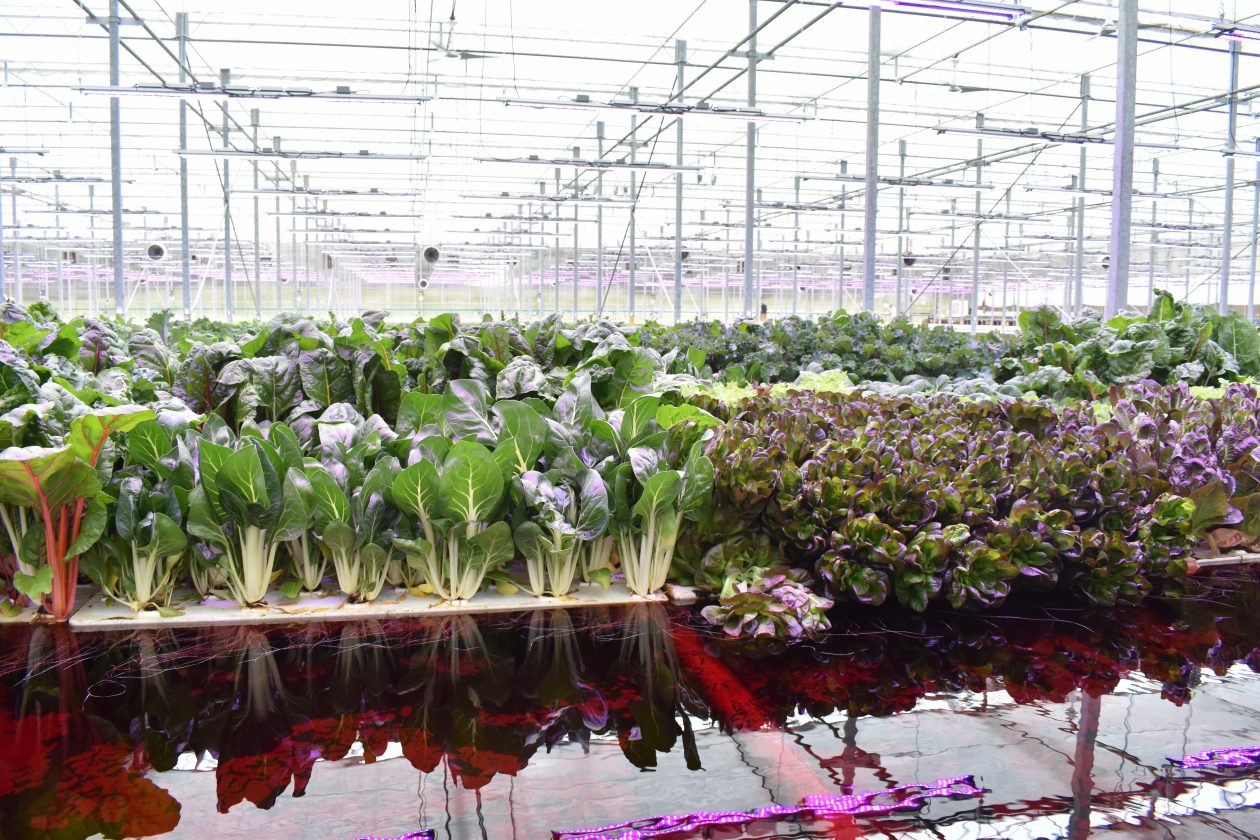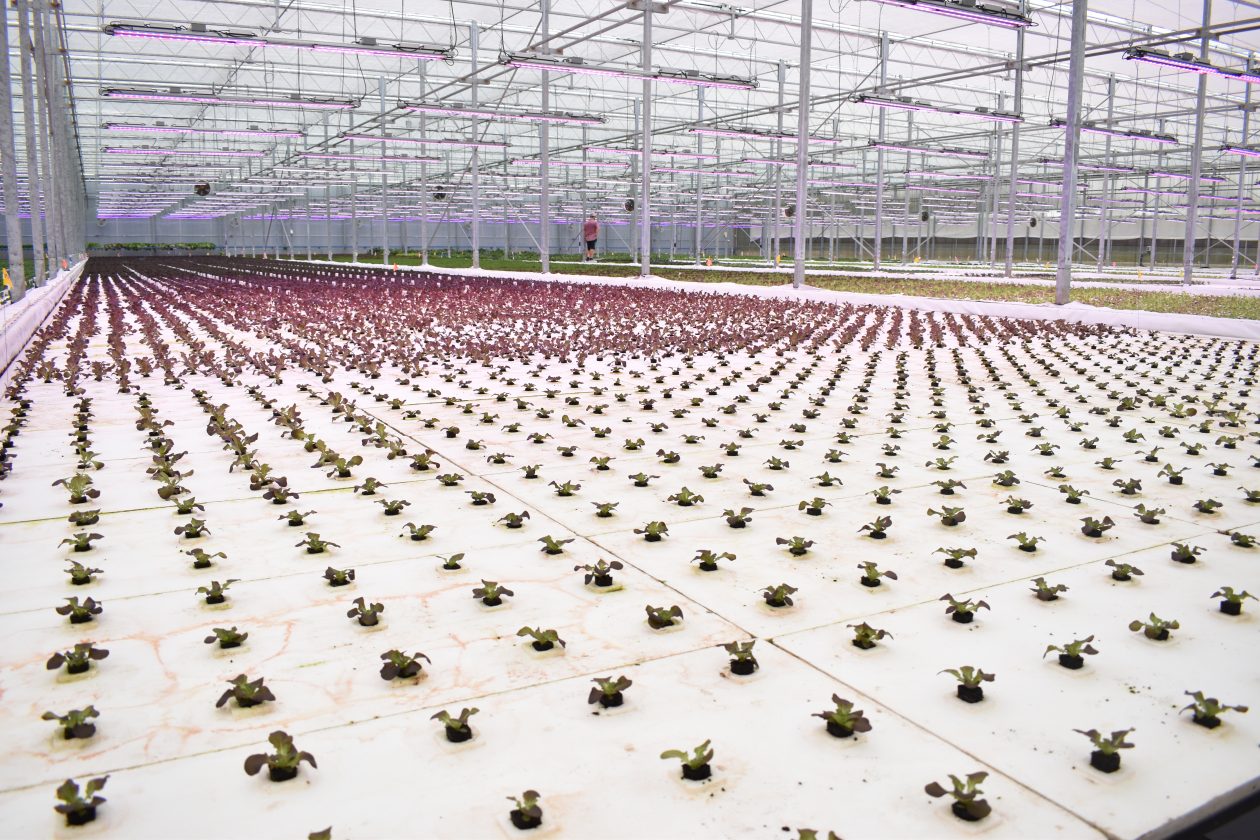Here at Feeding America West Michigan, we believe everyone should have access to fresh, local produce – including our food insecure neighbors. Revolution Farms takes this belief to heart by choosing to donate 1 percent of its hydroponically grown lettuce. Doing so fights food waste, while bringing farm-to-table freshness to those in need.
The farm strives to make people “feel good about what they’re eating, knowing that it’s fresh from the local community,” said Marguex, the farm’s business development and HR manager.

This includes people who may be struggling to feed their families at all, much less afford nutrient-packed, greenhouse-grown lettuce.
“A majority of the people who are food insecure in our community are down on their luck for a phase in their life, and it’s nice to be able to provide them some normalcy,” Marguex said.
Still in its debut year, the acre-wide greenhouse has provided delicious lettuce to many facing food insecurity by donating surplus produce to Feeding America West Michigan. Since the farm’s first yield last November, 4,000 pounds of lettuce have ended up on one of our trucks, headed toward the plates of those facing hunger.

The hydroponic farm also donates surplus lettuce to a local farmer, who uses it to feed pigs and cattle.
So far, the farm’s donations have been “opportunistic” – meaning, if the amount of lettuce grown surpasses the amount requested in orders, the surplus is donated. The donations have equated to approximately 1 percent of the farm’s total yield, but Revolution plans to continue donating that amount, no matter how many wholesalers are vying for the lettuce.
The main wholesaler they source to is SpartanNash, just four miles away from the farm. That’s far closer than Arizona or California, where Marguex says much of Michigan’s lettuce comes from after spending a week or more on a truck. That means most lettuce bought in stores will go bad far quicker than Revolution’s.

Hydroponics – a method of growing produce that uses water infused with nutrients, instead of soil, has many additional benefits. This method of farming enhances crop flavor, conserves water, eliminates weeds and makes it possible to grow a lot of produce in a small space year-round.
So why do farms like Revolution end up with surplus produce to donate in the first place?
“To keep our greenhouse healthy, we have to keep harvesting our lettuce every day,” Marguex explained.
Hydroponic farms like Revolution are constantly moving. Seedlings are placed on rafts so their roots can dangle into the water below. As the plants grow, the rafts are pushed through the water pools to make room for new rafts of baby plants. When these new rafts are added, some of the more mature plants must be harvested to make room, and to ensure they don’t bolt (send up a flower stalk and go to seed).

“Right now we are fortunate we have two avenues for our surplus lettuce,” Marguex said. “If we hadn’t have these options, it would end up in a landfill.”
After one of the food bank’s truck drivers picks up the lettuce, it’s brought straight to our warehouse, and is then sent directly to those facing hunger via Mobile Food Pantries.
Mobile Food Pantries create a “farmers market” experience for our neighbors facing hunger. Thanks to partnerships with local farmers, neighbors who attend Mobile Food Pantries often receive the cream of the crop – including surplus lettuce from Revolution Farms.
Whether they’re donating lettuce, or helping us fight hunger in another way, the commitment of the food bank’s partners makes it possible for us to serve more than 900 agencies throughout West Michigan and the Upper Peninsula.
Story written by Juliana Ludema, Communication Assistant

